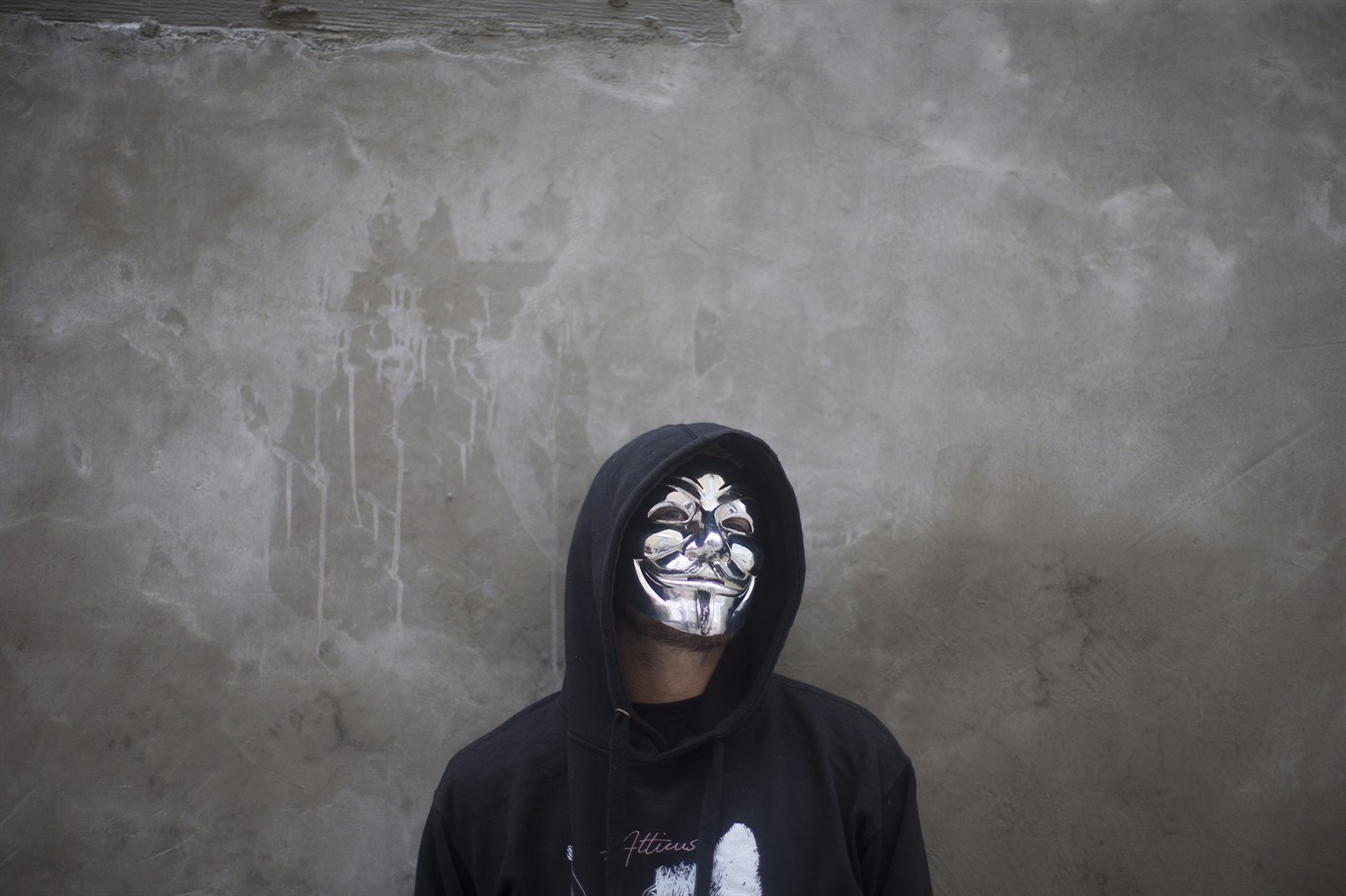What makes a villain?
Amish Tripathi, or Amish as he prefers to be called, is one of India’s most popular contemporary fiction writers. More than five million copies of his books have been printed and his works—dealing mostly with mythology—have been translated into 19 languages.
Set in the 3,400 BC, ‘Raavan: Enemy of Aryavarta’, tells the story of the King of Lanka, from the time he was born till he kidnaps Sita. The book is the third part of the five-part Ram Chandra series, the first two being ‘Ram: Scion of Ikshvaku’ and ‘Sita: Warrior of Mithila’. You needn’t have read the first two to understand and enjoy the latest installment. All three are multilinear narratives that basically set the background for the next two books in the series. It’s only from the fourth part onwards that the characters come together in one main narrative.
Most of us know Raavan as the villain in the epic Ramayana. Much of what we know and how we feel about Raavan has been shaped by the startling image of a ten-headed monster we saw in various versions of Ramayana on television. But, apparently, even in the original version of Ramayana—Valmiki’s Ramayana—there is a certain depth to Raavan’s character, something that’s completely missing in modern interpretations of the myth.
In Amish’s version, Raavan is an artist, musician, brilliant scholar who loves his books, and a ruthless businessman. It’s losing the only woman he loved that brings out the monster in him. In the book, Raavan belongs to the Nagas, a feared and cursed tribe (a group that featured in Amish’s Meluha series). As a child, he flees with his mother, Kaikesi, and uncle, Mareech, to protect his younger brother, Kumbhakarna, who is also a Naga and is ordered to be killed at birth. Much of the book is about how Raavan beats all odds to become the world’s wealthiest and most powerful man.
You also get to see a different side of Kumbhakarna than the one you have grown up knowing. You witness a kinder version of the character—one who isn’t a monster that Ramayana makes him out to be. He is intelligent, brave and focused on protecting his brother, which he considers to be his dharma. By the end of the book, there’s also a link, a possible explanation to Kumbhakarna’s legendary tendency to sleep for days on end.
There are times when the story is too preachy and the writing feels a little off—almost like someone forced the author to write at a gunpoint. But Raavan is a fascinating character and Amish has made him so multi-faceted that you want to get to know him more and thus keep turning the pages. You already know where the story is headed but that doesn’t matter; it’s the character you are discovering here. Also, there is a big reveal in the end that gives the story a nice little twist.
At its heart, Raavan: Enemy of Aryavarta is a love story and Raavan, for a change, isn’t the villain here.
An unusual love story
‘The Time Traveler’s Wife’, Audrey Niffenegger’s debut novel, opens in 1991. Henry DeTamble is 28 and works at the Chicago Public Library. Twenty-year-old Clare Abshire walks into the library and immediately recognizes Henry as the man who has been an indispensable part of her life ever since she was six. She knows she will marry him one day and that particular point in time is when they begin courting. But Henry doesn’t know her yet, despite visiting her several times over the years.
The Time Traveler’s Wife is the love story of Clare and Henry who first meet when Clare is six and Henry 36. The two get married when Clare is 22 and Henry is 30. No, you didn’t read that wrong. What we think of as impossible is possible in Henry’s case because he time travels. He suffers from a rare disorder, chrono-impairment, where his genetic clock resets periodically and he is sucked into his past or future.
The only thing is that Henry has no voluntary control over it. For instance, when Clare and Henry are getting married, he is whisked away right before the ceremony. An older version of Henry, however, appears just in time to take his place. Not many of his family and friends notice that all of a sudden Henry looks slightly older.
The story is narrated alternately by the two title characters, with Henry time traveling back and forth between his past and future. The story also roughly follows Clare’s chronological timeline, narrating her first meeting with the present version of Henry, their marriage and attempts to have children, and the effects of Henry’s sudden disappearances. There are also various scenes of Clare and Henry’s pasts where as a child Clare meets Henry and you get to see how Henry becomes accustomed to his time traveling.
It could have been a confusing read hadn’t it been for Niffenegger’s smooth writing. She has also taken care not to make the story too complex. And she ties all the plots together beautifully. There are revelations and explanations for everything that might initially confuse you. The romance element is extremely relatable and nothing feels over the top. The characters are well developed and you can actually envision yourself as Clare or Henry.
However, given the theme—time traveling—the story could have been a bit more compelling. I also at times had problems with a 30-something-year-old Henry hanging out with a six-, 10- or 15-year-old Clare. That kind of creeped me out. But the story as a whole had me gripped and thus, by the end, I could forgive the minor hiccups.
Fiction
The Time Traveler’s Wife
Audrey Niffenegger
Published: 2004
Publisher: Vintage
Pages: 518, Paperback
Bulbbul: Not your typical horror flick
Don’t let the trailers misguide you. “Bulbbul” is not a horror film that will scare you with ghosts in makeup and demons in CGI. Instead, it a hard-hitting film based on supernatural elements, which will scare your reality. Only a couple of weeks into its release, Bulbbul has been widely hailed as a powerful feminist film. With all its tactfulness, storytelling and factual representation, it deserves every bit of applause it’s getting.
The film is placed in Bengal Presidency in 1881 and starts with the wedding ceremony of five-year-old Bulbbul (Ruchi Mahajan/Tripti Dimri) who is getting married to Indranil (Rahul Bose), a rich landlord, who is also a few decades older than her. A mere child who is distracted by the proceedings around her, Bulbbul is actually being tricked into the marriage, and is shocked to find that Satya, closer to her age and who she thinks is her husband, is her brother-in-law, youngest in the family after Mahendra (Bose), Indranil’s twin. The child-bride Bulbbul forms a very natural bond of friendship with Satya (Varun Buddhadev/Avinash Tiwary) but is also burdened by the responsibility of being the ‘thakurain’ of the ancestral mansion under the scrutiny of her sister-in-law Binodini (Paoli Dam).
The narrative then jumps to 20 years later when everything in the village has changed. The once booming mansion is now somewhat desolate and the village is shrouded by what the locals believe to be an evil woman’s spirit. Satya, who returns home after five years abroad, finds that his eldest brother has left home while the younger twin has been murdered under mysterious contexts. His childhood playmate and sister-in-law Bulbbul has, also to his surprise, changed her personality, which confuses him. At the same time, reports of unsolved murder cases in the village start mounting.
Told after that in flashbacks and present narratives, the story of Bulbbul then unmasks the dirty faces within the family and its periphery. Written and directed by Anvita Dutt, and produced by Indian actress Anushka Sharma, Bulbbul takes on traditions, patriarchal customs, and everything that suppresses women. Starting with the now criminalized tradition of taking child brides, to the reference of women’s toenails as an accessory to control their spirit, to women who have been tamed by patriarchy trying to lasso other women into it—Bulbbul questions the root of these customs. Also, the film targets pedophiles, sexual abusers and violent perpetrators as the scum of the society who need to be dealt with the harshest punishments.
The screenplay of Bulbbul, however strong the theme, does seem to lag at times but there are plenty of good elements in the film to mask this weakness. The storyline itself, spun out of folklores, is somewhat predictable but the subject it deals with makes it very relevant as well.
As for the acting in Bulbbul, the actors create a world of their own. With most actors coming from outside commercial cinemas, their presence gives newness to the setting, and they are convincing enough to transport us way back in time.
Tripti Dimri as the adult Bulbbul is what her character needs to be—bonded yet liberated, innocent yet beguiling, simple yet mystifying. Tripti’s expressions don’t give away the storm she has built inside and that could be the most important requirement for her role.
Similarly, Avinash Tiwary as adult Satya offers strong shoulders for the story to rest upon. His re-entry into the scene as an adult starts a chain of events resolving towards the climax. Avinash takes on the burden of being a pivot to the plot and guides us through the story without appearing overzealous. Paoli Dam as the luxuriously living Binodini turned widow in penance also makes her presence felt.
Another remarkable part of the film is its camerawork and lighting. Siddharth Diwan’s cinematography maintains the etiquettes of a horror film through PoVs, handheld shots, and long-medium-short frame combinations to never let the audience’s view settle. Infused with the eccentric red lighting, the screen appears magical.
Who should watch it?
Again, Bulbbul is not your usual, scary horror film. It as an important tale nonetheless, told from a feminist perspective, and recommended for everyone, regardless of their age and gender.
Rating: 3.5 stars
Genre: Horror
Director: Anvita Dutt
Actors: Avinash Tiwary, Tripti Dimri, Paoli Dam
Runtime: 1h 34min |
Poetry for the unpoetic
Back in school, poetry never made much sense to me. Milton, Keats, Shelly—they all felt the same and went right over my head. If I had to write a poem, the last word of each line had to rhyme with that of the next. I’m kind of embarrassed to admit that I haven’t gotten any better at understanding poetry since. Thankfully, I no longer try to write poems, even though the itch is there sometimes.
But I haven’t given up on poetry altogether. Spoken word poetry and occasional stanzas at the beginning of various books have managed to keep alive the hope that one day it will all make perfect sense. In the meanwhile, I’m glad there are some poets who already do.
Gill mostly writes about womanhood and feminism and her poems challenge the conventional notion of what it means to be a woman. Her poems about life, loss, and being strong in general will have you nodding, saying, “Yes, that’s it… that’s exactly how I feel.” Her poems are what are going on in your head, you just hadn’t been able to put it in words. Reading her, for me, is an extremely calming and cathartic experience. It makes me realize my experiences and issues aren’t unique and, in that way, feel less lonely. If you are already a fan of Rupi Kaur then you will definitely love Gill’s empowering poems. ‘Wild Embers’ and ‘Fierce Fairytales’ are my favorites of all Gill’s books. You don’t have to read them in one sitting; you can keep them on your shelf and dip in and out whenever you feel like.
Instagram sensation, the anonymous and mask-donning Atticus has fans in stars like Shay Mitchell and Karlie Kloss. Dubbed as the #1 poet to follow by Teen Vogue and the “World’s most tattoo-able poet” by Galore magazine, Atticus has two books out with Simon & Schuster—‘Love Her Wild’, and ‘The Dark Between Stars’—both of which have received raving reviews. Readers are however divided on Atticus. Not everyone loves him, or even likes him. Some find his work painfully mediocre. But reading Atticus will make you think about love and relationships in a way you hadn’t before. I wouldn’t say all his poems are exceptional but I am particularly fond of how his books are designed with interesting, full-page black-and white-digital art and photos. They give you a moment to wonder and ponder.
Called the “Millennial Oprah”, Wade has over 685,000 followers on Instagram. Her book ‘Heart Talk: Poetic Wisdom for a Better Life’ is full of positive little nuggets that warm your heart. The small, square book, that you can easily slip into your pocket or purse, is branded as self-help rather than poetry. If you have ever wanted an instruction manual for life, this is it. Her words have also been used in advertisements for Gucci’s Chime for Change campaign, stenciled on Nike AF1 sneakers, and inscribed on designer dishes. Wade’s short, fragmented poems are little important thoughts in our head that, burdened by daily life and its hundreds of hassles, have been shoved at the very back.






















